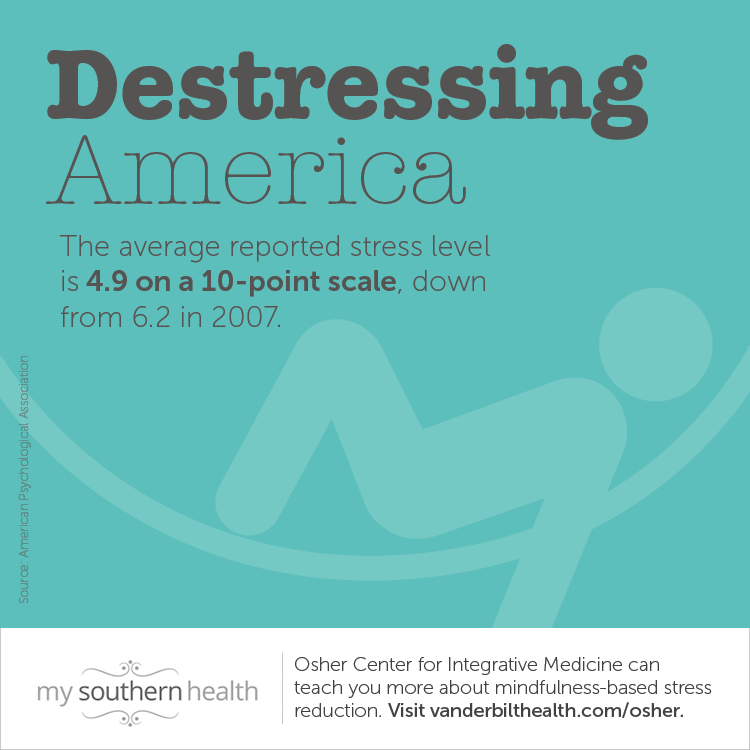Now is a good time to learn about managing stress.
If your environment is stressing you out, relax — you’re not alone. Tennessee’s top cities are considered stressful. CNNMoney reports that Memphis, coming in at 10th place, and Nashville, 33rd, are among some of the nation’s most stressed cities due to commute times, hours worked, crime, unemployment, poverty and more.
Though stress levels across the country are declining (4.9 on a 10-point scale, down from 6.2 in 2007), the American Psychological Association notes that the current level is still higher than the 3.7 that Americans believe to be healthy. And about 42 percent of Americans surveyed feel they’re not doing or may not be doing enough to manage their stress.
The following strategies can help you reduce stress:
- Recognize your stress sources. Are you constantly stressed by events concerning your children, family, health, financial decisions, work, relationships or something else?
- Identify how you deal with stress. Do you cope with stress with unhealthy habits such as smoking, drinking alcohol or over/undereating?
- Find healthy ways to manage stress. Once you identify inappropriate coping mechanisms, work slowly to change them one at a time. Think about calming activities like meditation, exercising or talking things out with friends or family.
- Take care of yourself. This is paramount. Always make time for yourself, no matter how crazy life gets. This means eating well, sleeping enough and drinking plenty of water. Don’t discount exercise — not only does it keep your body healthy, it also helps calm your mind.
- Reach out for support. You can’t do it all! Your friends and family want to help, so let them. Delegation is a good thing. If you’re still overwhelmed, talk to a psychologist who can help you manage your stress with healthy strategies.
- Walk away when you’re angry. You’re mad? Stop right there. Count to 10 and reconsider how you feel. Before you react, take a break. Go for a walk, pick up a book, paint your nails — really, almost anything. Exercise is a truly great choice as it produces your body’s mood booster: endorphins.
- Rest your mind. According to APA’s 2014 Stress in America survey, 42 percent of adults surveyed reported lying awake at night because of stress. Tips for getting the recommended dose of shut-eye: Don’t drink caffeine in the afternoon, ditch screen time when you’re getting ready for bed and avoid heavy meals late at night. Also, a little pre–bed meditation can’t hurt!
Learn more about services, workshops and events offered at the Osher Center for Integrative Medicine at Vanderbilt University to help reduce your stress.

